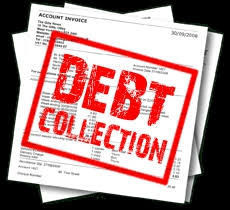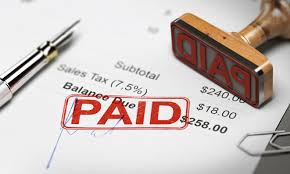![]()
If you’ve landed on this article page, you’re probably searching for a
good business idea—an idea that’s light on the pocket but heavy on
returns, promising both a fulfilling journey and potential profit.
|
How To start debt collection Business in
Nigeria
Debt collectors work with consumer or business clients to help
them trace missing debtors, contact debtors regarding their
debt, with the aim of finding a reasonable solution for all
involved (such as negotiating a settlement or creating a payment
plan), and administer legal collection procedures if necessary.
Hiring a debt collector: Many creditors hire debt collection
firms after they are unable to recover debts on their own.
Using debt collectors: This method has become more effective
over time, and many commercial entities have adopted it.
The debt collector collects the debt on behalf of the creditor
In this situation, the original creditor still owns the debt;
however, they use a debt collection agency as a way of
contacting the debtor. The debt collection business will be paid
a percentage of any money they collect.
Although a debt collection business can’t legally do anything
different than a creditor, they typically have the time,
resources and expertise to chase a debt more efficiently.
Debt collecting is a regulated activity, meaning there are laws
and regulations you must follow. Many debt collection agencies
work out of an office. They may meet with their clients in
person or via telephone. They can also speak to debtors they are
working with over the telephone or via email, or they can visit
their homes. When setting up your debt collection business, you
can choose whether to act as the sole debt collector or hire
employees who will also work as debt collectors for your
business.
Utilising various
tracing techniques and strategies to collect and collate the
necessary information for each case.
Writing letters to
inform debtors of their outstanding debts and how to repay their
debt.
Making phone calls to
debtors to discuss their debt.
Explaining repayment
options, including payment plans and ensuring the repayment
options are realistic for the debtor.
Negotiating repayment
terms and amounts and creating newly adjusted payment plans.
Handling any questions
or complaints.
Building trust and
positive relationships with both creditors and debtors.
Identifying vulnerable
customers and escalating these cases to the relevant support
teams.
Identifying
non-compliant customers and escalating these cases to the
insolvency teams.
Servicing court orders
to recover outstanding cases, if necessary.
Maintaining detailed
records of each case.
Updating account status
and the database regularly.
Accepting payments.
Monitoring debt payment
agreements and tracking repayments.
Carrying out appropriate
checks regarding non-payment before pursuing recovery action or
legal intervention.
To launch your debt collection agency, you’ll need a
professional office space, office equipment, and technology
infrastructure. This includes computers, phones, office
furniture, and debt collection software.
Hire and Train Staff
As your debt collection agency grows, you’ll need to hire and
train staff to handle the increasing workload. This may include
hiring additional debt collectors, support staff, and management
personnel.
Types of Customers
The customers of a debt collection business are typically
creditors who have been unable to reclaim debt that is owed to
them within the agreed-upon timeframe. Your business will
usually act as an intermediary for lenders and other creditors
who are owed a debt that is at least 60 days overdue.
Credit card companies.,
Loan companies (e.g. personal loans, store loans or car
loans). Utility
companies., Mobile phone providers., TV and Wi-Fi providers
(e.g. Sky and Virgin), Student loans,
Private parking companies.,
Construction companies (e.g. to seek payment for their
work).,
Professional service providers (e.g. architects, engineers,
lawyers or financial advisors that were not paid for their
services).
The commission percentage can vary significantly but typically
averages at between 10% and 50%.
Alternatively, you could opt to purchase debt from the original
lender or creditor. Your business will then become the legal
owner of the debt, meaning your profit will be the entire amount
you collect from the debtor. Although the price of buying debt
can vary significantly, on average, debt collectors pay 10%
for every N1m of debt they purchase. For example, if the
debt you purchase is N1M, the average purchase price will be
N100k.
Typically, the creditors and lenders who are likely to use your
services are:
Businesses and lenders
that have insufficient internal resources, a lack of expertise
or no available time to chase debt that is owed to them.
Businesses and lenders
that have previously failed to collect debts themselves and who
are finding their profits affected by outstanding debt.
Businesses and lenders
that have been unable to trace a debtor.
Businesses and lenders
that experience a customer who is disputing a debt or disputing
an invoice.
If you are thinking of starting up a debt collection business,
you will need to ensure you have strong verbal and written
communication skills, the ability to stay calm under pressure
and good negotiation skills. You should also be able to
demonstrate empathy and understanding towards individuals and
businesses in debt and be able to explain financial matters,
repayment options and credit services clearly to the debtor. You
must also ensure you have a solid understanding of relevant
legislation and court procedures. Get our Practical Training Guide on How to set up a Debt Collection Agency in Nigeria. If you want to become a professional Debt Collector you need to learn how to become one. So, if you don’t know where to start, don’t worry. We will show you all you need to know to become the best Debt Collector.. In this guide, we provide a step-by-step guide on how to become a Debt Collector, discuss some tips for getting into this field and describe what to expect from this career.
|







